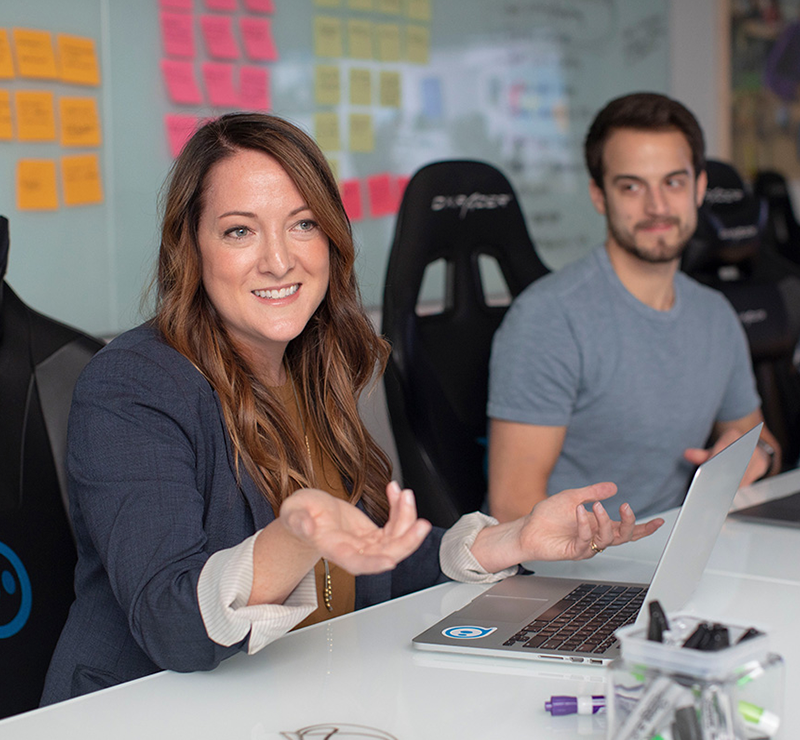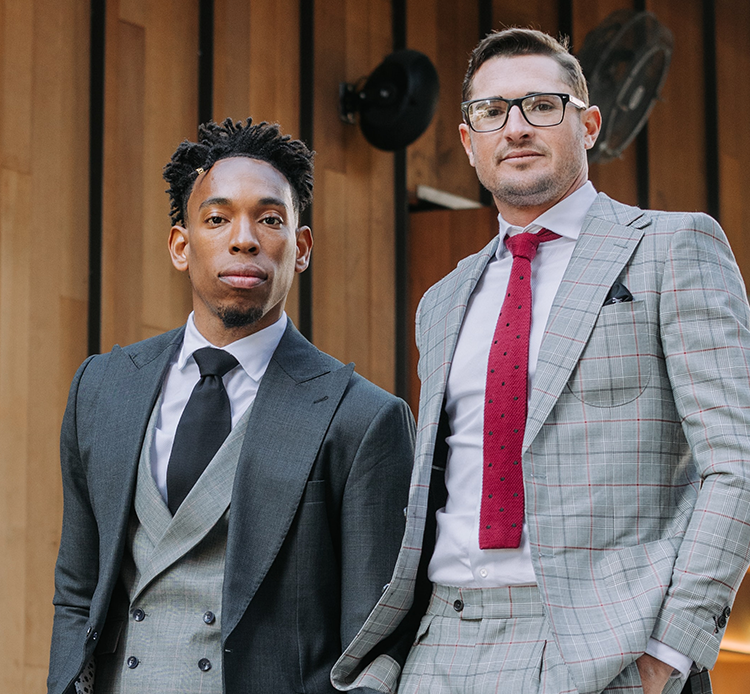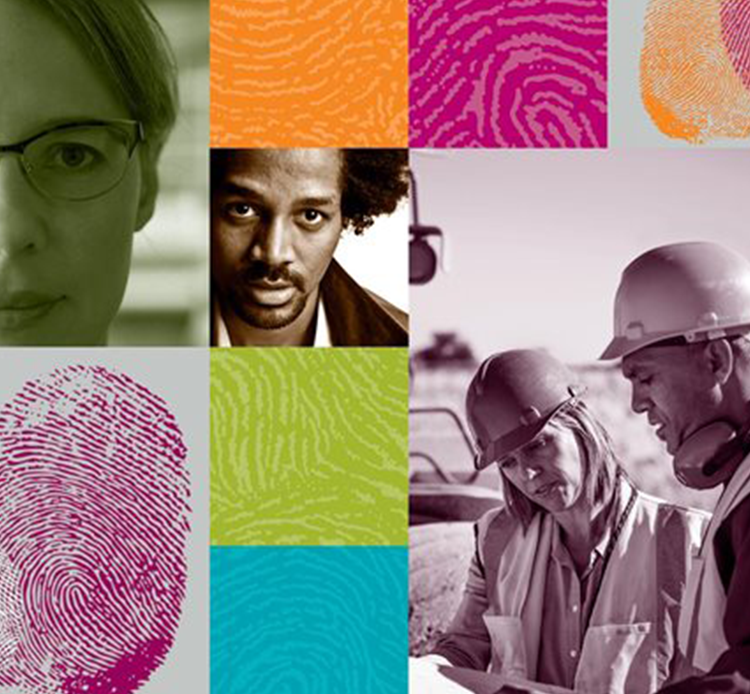
Diversity, Equity and Inclusion Resources
How to use these resources
We all have unconscious biases. They are learned stereotypes that are automatic, unintentional, universal, deeply ingrained within our beliefs, and have the ability to affect our behaviour. Being aware of our own biases is the first step towards eliminating them. By moving our biases from the unconscious to the conscious, we can better understand the negative impact it can play in our lives.
Thankfully, these learned stereotypes can be unlearned. You can take responsibility for your own growth and education by actively seeking alternate perspectives, listening to those who are different to yourself and growing your knowledge of different cultures, religions, genders, races, ethnicities, and other characteristics or cultural expression with which you do not identify.
If you are willing to have honest, difficult (and still respectful) conversations, explore perspectives different to your own, intentionally listen, address your own implicit biases and hold yourself (gently) accountable, we hope your understanding of different lived experiences will grow.
We hope you find these resources helpful.
Recommendations
CE’s Recommended Reading List
With the impact of the Black Lives Matter movement, we have all been reminded to continually self-learn and reflect on our privileges. We’ve pulled together list of the best books on diversity and inclusion, the most essential and insightful reads about race, gender, unconscious bias and building a more inclusive organisational culture.
CE’s Recommended Podcast List
Working to continually self-learn and reflect on our privileges doesn’t have to be a chore. We’ve pulled together list of the best podcasts on diversity and inclusion, the most essential and insightful listens about race, gender, unconscious bias and building a more inclusive organisational culture, learning (or unlearning) from some amazing speakers.
CE’s Recommended Viewing List
There is a whole host of videos breaking down I&D, privilege and bias. Ranging from short primers, Ted Talks to longer films and documentaries, there are a multitude of video resources available that share different perspectives, opinions and learnings about building a more inclusive society, culture and workplace.
Resources
Acceptable Words to Use in the Workplace
List
Words matter. They are a key component of persuasive communication. A leader uses language to influence towards results. That’s one reason they’re seen as leaders; their words compel people to follow. If you want to be perceived as a leader in the workplace, a great place to start is by deliberately choosing to speak words and phrases that are empowering to yourself and others.
Stop It Policy by Lydia Amoah
Policy
During a global lockdown the business world moved online, and the rise of highly prevalent cyber-harm: hate hacking followed where one of our colleagues, Lydia Amoah, received hateful racial abuse.
This policy specifically addresses the abhorrent practice of hate hacking and how to implement incident management policies and process to prevent hate hacks, and support victims.
Diverse Speaker
Bank
Library
We work with a huge array of Diversity, Equality And Inclusion Keynote Speakers. Ethnicity, gender, age, disability: we’re in a time of change where diversity, equality and inclusion are becoming paramount to business. Now has never been a better time to hear from diverse perspectives. Get in touch to discuss the best diverse and inspiring speakers for your next event, or awards panel.
Bias Breakdown: Biases present in your work
List
Our brains use bias shortcuts to make decisions about people and situations based on our experiences of the world. It's part of our 'fast thinking' process which is metaphorical, intuitive, associative and impressionistic. Bias has a huge influence over who gets recruited, promoted, retained and groomed for those critical leadership roles, which results in discriminatory practices, with harmful real-world outcomes.
#ShowUs - An Inclusive Image Library
Library
Getty Images, Dove and Girlgaze together provide #ShowUs – a ground-breaking library of 5000+ photographs devoted to shattering beauty stereotypes by showing diverse female-identifying and non-binary individuals as they are, not as others believe they should be.
A Social Designer’s Field Guide to Power Literacy
Guide
Are you ready to create a more socially just practice? This field guide helps designers, researchers and facilitators develop power literacy. This includes building up your awareness of, sensitivity to and understanding of the impact of power and systemic oppression in participatory processes. It will help you gain a holistic understanding of power, while examining the role you play in reproducing inequity – however unintentional – and what you can do to change this.
I&D Webinars
Library
During the #atHomeTogether lockdowns of 2020 we ran a series of diversity and inclusion online events, showing up for our community when times were tough. We brought a mix of free webinars, our best-in-class training and support for those who struggle with 'presenting' their authentic selves.We acted as sounding boards for leaders who wanted advice on inclusion in a time of Covid-19, running inclusive teams or effective communication strategies. It was so good, we’re sharing our webinars with you. Check them out!
50 Potential Workplace Privileges
List
A privilege is a certain advantage, benefit, or prestige/respect that an individual might have by virtue of belonging to certain social identity groups. Privilege is sometimes disregarded by those who benefit from them, but privilege doesn’t mean you haven’t experienced hardships. It just means the colour of your skin, your religion, your gender or sexual orientation isn’t one of the things that make it harder. Check out these potential workplace privileges.
Research shows that your two-year-old may already be noticing race
List
Should we be talking to our young children about race and racism? When is a good time to start? What do we say? As parents, may of us struggle about the best way to manage such a complex, nuanced topic with our young ones who are just beginning to make sense of the world. How early is too early to start introducing anti-bias and anti-racism?
Reports, Research + Resources
Diversity/Inclusion
The Cycle of Distrust: Edelman Trust Barameter
Edleman 2022The Levers of Change Gender Equality Attitudes Study
UnstereotypeAlliance, 2022Inclusions Next Wave
Wunderman Thompson, 2022Unstereotype Metric Annual Review
The Unstereotype Alliance, 2021Academic DEI Event Planning Checklist
Columbia Business SchoolInclusive Language Guidelines
American Psychological Association, 2021The ACT Report: Action to Catalyze Tech: A Paradigm Shift for DEI
Aspen Digital, 2021The power of inclusive portrayal in advertising
Kantar, 2021What Works? Evidence-based ideas to increase DEI in the workplace
Radcliffe Institute for Advanced Study at Harvard University, 2018Reflecting a Modern Britain
Lloyds Bank, 2018Representing? Diversity in Advertising
7 Star, 2018Disrupt Bias, Drive Value
Coqual, 2017Influence in the Digital Age
Stackla, 2017
Ethnicity/Race
Ethnic marketing to the global millennial consumers: Challenges and opportunities
Journal of Business Research, 2019Ethnicity in Advertising
Lloyds Bank, 2018The Women We See
The Mayor of London, 2018The Ethnicity Pay Gap
Equality and Human Rights Commission, 2017The Case of Diversity in Advertising
Google, 2017Latina 2.0 - Fiscally Conscious, Culturally Influential and Familia Forward
Neilson, 2017Multicultural Britain
IPA, 2021
LGBTQIA+
Shut out: The experiences of LGBT Young People in Education, Training or work
Stonewall, 2020Outvertising Guide to Better LGBTQ Representation
Outvertising, 2019National LGBT Survey
Goverment Equalities Office, 2018LGBT in Britain: Work Report
Stonewall, 2018LGBT in Britain: Trans Report
Stonewall, 2018LGBT in Britain: Home and Communities
Stonewall, 2018Engaging Transgender People
Community Connections, 2018Outvertising Guide to LGBTQ in Advertising
Outvertising, 2016Reporting on the Bisexual Community
Glaad, 2016Understanding Transgender Inclusivity in Advertising
Sonoar, 2015
Gender
Sex and Power
Fawcett, 2022Women in the Workplace
McKinsey, 2022Women in Advertising
IPSOS, 2021Women in the Workplace
McKinsey, 2021Board gender diversity and firm performance
International Journal of Finance and Economi2020The effects of gender disparaging advertising
City University of London, 2020‘I Wanted More Women in, but . . .’: Oblique Resistance to Gender Equality Initiatives
Work Inclusivity Research Centre, 2020Women in Business: The Value of Diversity
Grant Thrornton, 2015
Disability
Disability 100: FTSE 100 Review
The Valuable 500, 2021Disability and Leadership: New Challenges, New Possibilities
Work Inclusivity Research Centre, 2021Disability and Leadership: Engendering visibility, acceptance and support
Heidrick and Struggles, 2018
Age
The Psychology of Inclusion and the Effects in Advertising: Gen Z
Microsoft Advertising, 2020Inclusivity through flexibility
Centre for Ageing Better, 2020Managing an age diverse workforce: what employers need to know
Championing better work and working lives 2015Attitudes of the over 50s to Fuller Working Lives
Department for Work & Pensions, 201
Book a free 15 minute consultation
Inclusion is a live challenge now. Get in touch to book a free 15 minute consultation to see how we can help transform your organisation.


















